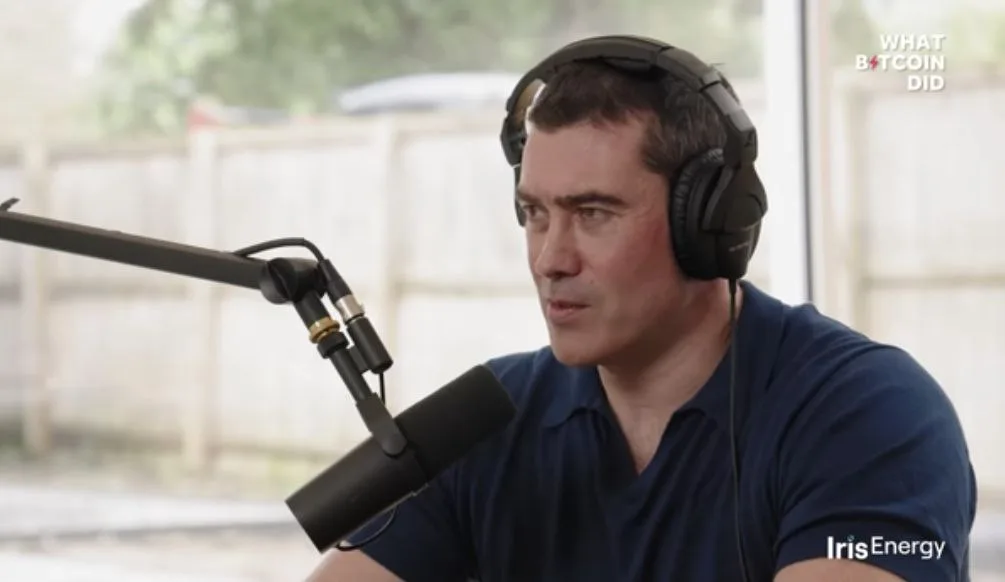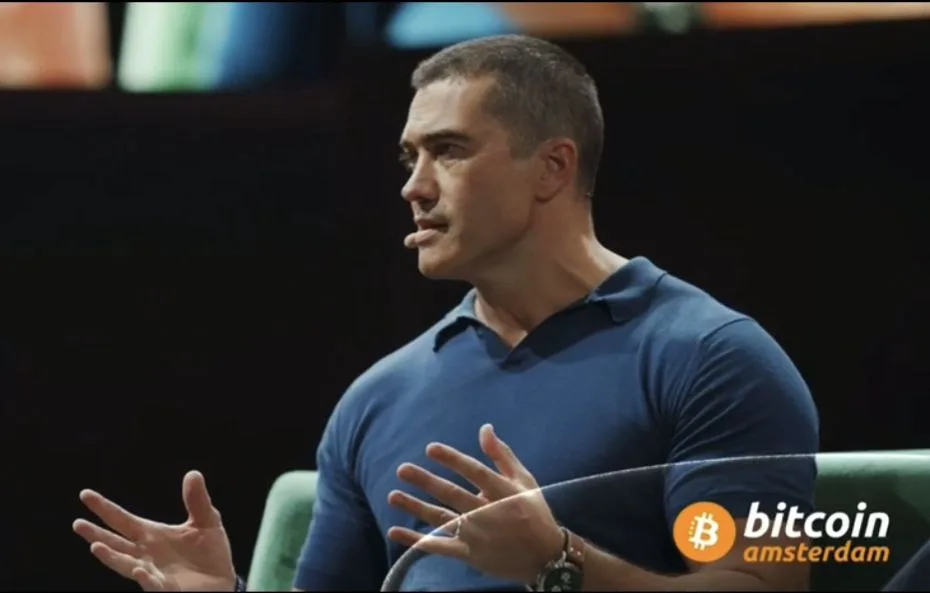Freddie New has been immersed in Bitcoin and payments policy for many years. He started as a lobbyist in 2002 before transitioning to law, where he worked in high-value mergers & acquisitions for many years before transitioning to start-up work, advising early-stage paytech and engineering companies.. Freddie has provided evidence and expert guidance on Bitcoin to Parliamentary committees, the FCA, HM Treasury, HMRC and the Bank of England. He is a co-founder of Bitcoin Policy UK and of the Independent Centre for the Digital Economy and Finance, a research platform that provides access to non-partisan research in the space.
Now as Head of Policy at Bitcoin Policy UK, Freddie continues as an authoritative voice shaping UK regulation. His viral Twitter threads distil complex policies for thousands of followers. With this unparalleled experience, he offers unique insights into the Bitcoin regulatory landscape.
In this exclusive interview, we explore threats to Bitcoin and how innovation-friendly policies can enable UK growth. Freddie outlines how the UK can adapt to become a global Bitcoin leader long-term.

Thank you for taking the time to speak with us today, Freddie. Your insights are incredibly valuable for understanding the intricacies of UK crypto policy.
Let’s start with your background. What sparked your initial passion for Bitcoin and crypto policy reform?
FN: So I began simply as a hobbyist with an interest in Bitcoin, sparked by an existing liking for building computers and an unsuccessful attempt at GPU mining (just early enough to try it, but also late enough for me to lose money doing it). Over time, this interest expanded to include many other issues that are important to me – fairness, financial freedom and autonomy, privacy and individual freedom of choice, and also financial matters such as payments technology, capital controls and how individuals can fight back against financial repression and unfairness using the asymmetric power of a cryptographic system that can’t easily be controlled or shut down.
It’s these other issues that have really sparked my passion for trying to advocate for sensible Bitcoin policies. I worked in law and in fintech for a long time, and while doing so it became clear to me that there was a bit of an information gap between the people making the regulations and the people who used and understood the technology. I’d like to do anything I can to try and bridge that gap.
Your viral Twitter threads help to translate complex regulations into informative analyses for the ‘average Joe’. What responses and feedback have you gotten from the Bitcoin and wider crypto community?
FN: I’ve honestly been genuinely touched by the kind of welcome I have had and the responses I have received, and I’m really grateful for it. Bitcoiners in general are some of the best, most intellectually honest, and rigorous people I have ever met.
You have to remember, I’m a lawyer, not (to my shame) a developer or a coder; I can only contribute to Bitcoin in a relatively limited way and am doing what I can with my particular skill set. I was anon for a very long time, and only reluctantly became public – initially as part of my job, with submissions on Bitcoin to Parliament and to the FCA, and now via Bitcoin Policy UK.
If I’ve been able to give anyone any insights into the information gap I mentioned earlier, to set out what the issues are, and how we aim to steer regulation in a sensible direction, then I‘m delighted and I hope to keep doing it as long as it’s useful for readers.
Some critics argue the Crypto and Blockchain All Party Parliamentary Groups are not doing enough to understand Bitcoin’s ethos of individual financial sovereignty. Do you agree based on their output so far and how could they help more?
FN: A fundamental issue we are facing here is one of category confusion. A common refrain you’ll hear in the Bitcoin community is ‘Bitcoin, not crypto’. I actually feel that this message is not getting through; virtually everyone outside the space conflates both Bitcoin and crypto into one, and it’s been virtually impossible to disentangle them. Also, when I have had these conversations, an initial response I often get is ‘But isn’t Bitcoin a cryptocurrency?’. If you answer yes, then it takes away from the force of the argument. I’m beginning to think that a better approach may be to say that Bitcoin is a unique subset of crypto, standing alone and with its own set of exceptional properties.
The reason I mention this is that each of the All Party Parliamentary groups are literally swamped with lobbying efforts from ‘crypto’ companies, which are very well funded, and have their own agendas and the means to get their message in front of these politicians. A lot of these companies don’t care about Bitcoin and don’t have much incentive to promote it – you could be talking about Ripple, who allegedly want to support CBDCs around the world with a view to securing government contracts to run them, or NFT and metaverse companies, who have got lumped into the same ‘crypto’ bucket but which in reality have almost nothing in common with Bitcoin as a free and open source protocol for transmitting value in a secure and decentralised way over the internet.
If there was one simple thing that each of the Parliamentary groups could do to help, it would be to meet with more Bitcoiners and understand firstly why it is unique from a monetary perspective, and secondly, how important mining is likely to be for the energy sector in future.
Given proposals like the FCA’s crypto derivatives and tokens ban, what are the biggest threats you see now to UK Bitcoin innovation and adoption?
FN: Well, the biggest threat is actually because some of the recent regulation in the UK is unfortunately misguided, the industry and the advantages that come with it will simply choose to ignore the UK entirely, to the detriment of its citizens and to its economy. Bitcoin will be fine, but the UK will be left behind. The ban that I believe you’re referring to is the prohibition from the FCA that prevents UK retail investors from getting exposure to exchange-traded products linked to cryptocurrencies; this is very much out of step with the US following the ETF approvals there, and also with the EU. We currently have UK firms listing these kinds of products on European exchanges and offering them overseas because they can’t do so here. This is somewhat absurd.
Do you think recent UK crypto promotion regulations strike the right balance for growth and protection?
FN: The FCA has recently categorised Bitcoin as a ‘restricted mass market investment’. This is a particular type of product that can only be offered to investors under certain circumstances and can be promoted only in certain ways. This definition now includes non-readily realisable securities, P2P agreements, P2P portfolios, units in long-term asset funds, and (absurdly) Bitcoin, which you can mine at home and I can send to you on a video call using a QR code. Try doing that with a unit in a long-term asset fund! This categorisation is palpably ridiculous and unfortunately means that it’s harder for Bitcoin businesses to operate in the UK (but won’t stop people from buying Bitcoin whether peer-to-peer or from offshore exchanges).
This really exemplifies the threat, as such, in its simplest form. A failure by the regulators to understand the asset leads to bad regulation, which doesn’t protect individuals but does cause harm to companies and to the economy in general.
How can regulations allow core Bitcoin principles like privacy and self-custody while still protecting consumers?
FN: It’s an interesting question; I’d prefer to see clear messages to consumers about how to protect themselves, rather than delegating that responsibility for protection to an unelected body that arbitrarily decides what you can and cannot do with your own money.
Personally, I have never recommended that people should ‘buy Bitcoin’. I suggest that people read about it, learn about it, learn how to use it and what its properties are, and then decide whether or not they want to buy it. I would ideally prefer that all exchanges gradually transition to peer-to-peer, where purchases are made directly to individuals’ self-custody. I’m aware there is an acute problem facing us in the future regarding the extent to which self-custody is possible for small UTXOs in a high-fee environment, but this is a protocol problem, not a regulatory one.
In summary, I don’t think it’s the job of regulators to ‘allow’ privacy. Privacy should be the default, and we should give it up voluntarily only in exchange for something else. If regulators really must get involved, then they can regulate the exchanges (which they are beginning to do) and ensure, for example, that these exchanges have full reserve requirements, don’t trade with their customers’ coins, and that people who use them for custody have their funds protected. Transfers from exchanges to self-custody and vice versa should remain freely available.
You often tweet about teaching your own children about Bitcoin. Why is Bitcoin education for children so important? How can we improve it?
FN: I really look forward to a world in which, ironically, I’m not really talking or thinking about Bitcoin any longer, in the same way that I don’t think about TCP/IP when I use the internet. If Bitcoin has succeeded, it will simply be there, functioning in the background, while we can get on with the rest of our lives.
So what I do with my children is firstly to teach them about something that I personally find fascinating, and also to use Bitcoin as a springboard to talk about all manner of other subjects too – computing, engineering, financial literacy, banking, commerce – you name it. I think a lot about that Max Planck quote – “A new scientific truth does not triumph by convincing its opponents and making them see the light, but rather because its opponents eventually die, and a new generation grows up that is familiar with it.” This is what we’re seeing play out in real-time. The old guard of central bankers will gradually die off, and the new ones will succeed them; as bankers who have never lived in a world without Bitcoin. They may still not like it, but I’d expect them to treat it more as an enemy worthy of respect than with the dismissive arrogance we see from the current crop.
If I had to pick one thing to improve, it would be to include general financial literacy training and education in schools. Something as simple as the rule of 72 in relation to inflation is astonishing and I wish I’d been taught this when I was younger! (The rule simply states that you divide 72 by the rate of inflation to discover how quickly your purchasing power will be cut in half – the result gives you the number of years).
What specific political and cultural changes would need to happen before Bitcoin could realistically become legal tender in the UK?
FN: Legal tender is a very very long way away, and bluntly I think there’s a very low chance of this happening. Sovereign nations that can issue their own currency almost never give up that power. Bitcoin is already being accepted, voluntarily, as a means of payment by an increasing number of merchants in the UK (have a look at BTC Map for details). As time passes, and sterling is debased further and further, the benefits of a neutral non-state issued money that the government cannot debase will inevitably become more obvious. BPUK’s key mission is that we want all UK citizens to have the option to use and save in a neutral, distributed and decentralised digital money that cannot be debased or diluted by any government or central bank, and which no third party can prevent them from spending or using as they lawfully see fit. That’s a far cry from a legal tender request and not very much to ask!

How do you believe the UK should advocate for innovation-friendly global crypto policies versus restrictive ones?
FN: The one key overriding principle for consumer-facing regulation should be the very general principle that its aim is to prevent customer harm. Taking some steps like those I’ve suggested above would be good and non-controversial – such as preventing exchanges from rehypothecating their customers’ funds, and ensuring that exchanges carry insurance in case of hacks, and so on. In financial terms, and in terms of supporting innovation, once these basics are dealt with, the regulators should then get out of the way and let the market discover what are good products and what are not.
The intersection of energy and mining is one area that policymakers could be helpful but I’ll touch on this when we get to the energy question below.
For Bitcoiners engaging policymakers, what advice would you give on being heard and advocating proportional regulation?
FN: Keep trying! We’re starting this race with both feet tied together – it’s a complex subject, and many of the people we’re trying to reach have already had their minds made up by some article they may have read a decade ago telling them that Bitcoin was a ponzi.
I try to make the approach with a lot of reading and learning under my belt (and I’m always trying to do more); and a little humour and humility as well. We’re advocating for a fairer and more inclusive financial world, but to many of our opponents, we’re just crypto bros who want to get rich. It’s important to remember this and also that the people we’re speaking to may not initially understand why we think that what we’re doing is important. So courtesy is key, as is persistence.
Some have proposed limiting Bitcoin mining in the UK due to energy usage concerns. What sustainability counterarguments would you highlight?
FN: The only concern I have is that Bitcoin will not use enough energy in order to achieve its full potential as a mitigator of methane gas emissions, a stabiliser of sustainable energy grids, and a provider of surplus heat to warm homes, heat water and power greenhouses in cold climates.
Thinking that Bitcoin is bad for the environment is an easy mistake to make. It’s one I wrestled with myself before I understood even a modicum of the complexity of this issue. If all you know about Bitcoin is derived from a Guardian article you read in 2017, this is totally understandable.
But if that’s the sum total of your understanding, you may not realise that new wind farm projects can take years to get connected to the national grid and that they need a buyer for their power to be economically viable before they’re connected. You may not know that grids powered by renewable energy sources waste and curtail vast amounts of electricity that they simply cannot deliver to the grid, or that in order to work properly, a renewable energy grid has to overbuild its supply to account for the intermittency of that supply. In each case, wasted power is generated and buyers for that wasted power are needed. A sustainable grid requires both batteries (whether chemical, flywheel or gravity) and demand response. The evidence shows that there are no better demand response buyers of electricity than Bitcoin miners – they are location agnostic and can be powered down virtually instantly, to deliver power back to the grid as soon as it is required. Bitcoin mining will be an invaluable part of our sustainable grids in future (just as soon as the establishment stops being too pig-headed to realise this!). This is even before we begin to discuss the ability of miners to mitigate our methane emissions, whether from farming or from landfills, by co-locating at points of methane generation and combusting this potent greenhouse gas before it reaches the atmosphere.
These are complex issues, and exactly the kind of matters we at BPUK are putting in front of regulators and politicians. None of them are simple to explain, but once you see the potential it’s an extremely exciting area of the industry to explore.

You previously spoke at the high-profile Bitcoin Amsterdam 2023 Conference. What insights have you gotten if any with responses from that global audience?
FN: My key takeaway, and perhaps a piece of advice as part of it, is that if you are worried about governmental overreach, about encroachment on our freedom, or about the endless accumulation of power and control by an elite few to the detriment of the vast majority of us who just want to live our lives in peace, then do not despair, because you are not alone.
And my piece of advice – get out there; come to a meet-up, go to a conference, don’t sit alone at home and worry about these things. There are a lot of good people out there, who will share your concerns, who want to work hard, look after their families and simply get on with their lives – and there are more of us than there are of them. Get out there, meet them, and get involved. All that is necessary for evil to triumph is for good people to do nothing, but I absolutely believe that most people are in fact, good people.
Let’s get out there, find each other, and work together for a better world.
The EU and UK are proposing regulations around self-hosted wallets. What are the potential risks of these policies?
FN: The key regulation I’m aware of relates to the Financial Action Task Force and what is known as the Travel Rule, which in a very basic sense requires financial institutions to gather information about the senders and receivers of funds. You may be aware that in some cases, exchanges will ask (when you’re transferring Bitcoin to an address you control) if you do own that address, and if not, then who does?
This is annoying but I see it as an inevitable consequence of the fact that over time, exchanges are likely to trend towards being similar to banks and likely regulated in a similar way. Think of this restriction as analogous to taking money out of a cash point using your bank card. In the physical world, you identify yourself using your card and PIN; in the digital world at present, you simply tell the exchange that yes, you control that wallet – and then once the coins are withdrawn, you can transact freely. Those coins will already be doxxed since you had them on an exchange in the first place.
There’s a more fundamental point to make here though, which is your question about ‘proposing regulations around self-hosted wallets’. This exemplifies a point I’ve now made several times, which is that the people trying to write these regulations don’t have the first idea of how the protocol functions. They seem to assume that they can freeze coins, or confiscate them – this is laughably absurd. I’ve sat at home with my kids and created a new ‘self-hosted’ wallet simply by flipping a coin, and no government on earth has the power – short of using actual physical violence – to stop me from transacting with that wallet.
We’ve said repeatedly in our communications with regulators – you can regulate the behaviour of individuals, or companies, but you essentially can’t regulate the protocol. It’s self-regulating and absolutely out of your control. This is not a message that any regulator particularly enjoys hearing.
You recently highlighted issues around exchange KYC and “Qualified Investor Questionnaires” in a viral thread. Can you expand on the concerns here?
FN: These are reasonably specific to the UK, and have been put in place as a result of the erroneous ‘restricted mass market investment’ definition that I mentioned above. In order for exchanges to continue to offer Bitcoin to customers in the UK, those customers now need to complete such ‘Investor Questionnaires’, that demonstrate they have some understanding of the asset they’re buying. They also have to confirm that they’re either a high net worth individual or if not, that they will not commit more than 10% of their assets to ‘restricted mass market investments’ in a particular period of time.
Or, they could just ignore all these restrictions, and buy as much as they like on a peer-to-peer basis – demonstrating the laughable ineffectiveness of this regulation and the fact that it only pays lip service to customer protection, and is utterly unenforceable as well as being completely misguided in the first place.
🚨 Public Service Announcement for UK #Bitcoiners! 🚨
— Freddie New (@freddienew) January 6, 2024
You may be aware that owing to the erroneous categorisation of #Bitcoin by @TheFCA (which @bitcoinpolicyuk and the majority of the industry strongly argued against), exchanges in the UK are bringing in new ‘customer… pic.twitter.com/7m6nCdNk7r
Overall, what gives you hope the UK can become a thriving crypto innovation hub long-term? How can Bitcoin Policy UK help achieve this?
FN: I don’t want to be too downbeat on this one, because I would love to see the UK fulfilling its potential as such an innovation hub, but this is an uphill battle. Part of this is because the UK has an extremely sophisticated and well-established financial services industry already in place; one of the oldest and most sophisticated in the world. Ironically, this makes it particularly difficult for decision-makers to comprehend why an invention like Bitcoin could be of such seismic importance for the financial system and quite how many aspects of that system it could potentially disrupt.
Our regulators could take an enlightened, and light touch approach, ensuring that exchanges are safe and that customer funds held there are protected, but frankly, most of the regulation that we are currently seeing appears to have been designed with the aim of dissuading people from discovering or holding Bitcoin. This effort will, of course, ultimately fail, but speaking with a modicum of patriotism for my adopted country, I’m sorry to say that this will ultimately result in the UK being left in the dust by other more enlightened and forward-thinking jurisdictions.
Not to finish on a downbeat note though – BPUK will continue taking the fight to the regulators and advocating for a course correction, for as long as we can and as long as it takes!
Thank you again Freddie for sharing your invaluable perspectives on the path toward sensible and innovation-friendly Bitcoin regulation in the UK. Your work is tremendously important for protecting financial freedoms while also providing prudent oversight safeguards. Please keep fighting the good fight!




